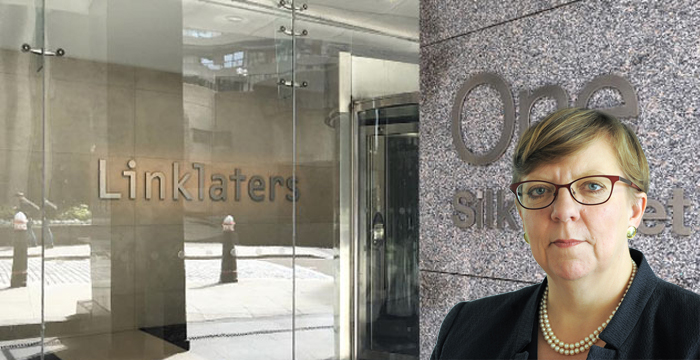One of the more interesting pieces of recruitment in the legal job market was the hiring of Alison Saunders by ‘magic circle’ firm Linklaters. The former Director of Public Prosecutions (DPP) was no stranger to the headlines presiding over a tricky five-year period at the head of the Crown Prosecution Service. She has now secured a plum position at one of the world’s leading law firms. But what is behind the move and does it raise any serious questions especially in relation to conflict of interest?
There is no shortage of public servants who make the leap into the private sector. Numerous senior politicians are often courted for top jobs after they depart the civil service: Tony Blair famously joined JP Morgan, David Cameron was enlisted by Illumina and former Chancellor George Osborne seems to have more appointments than he can shake a stick at. Such recruitment from the public sector is often greeted with a decent dollop of cynicism. Whether it is over an inflated salary package or the issue of a possible conflict of interest, eyebrows are often raised and fingers are furiously wagged.
It is fair to say that Alison Saunders’ term at the top of the criminal justice system was not as smooth as she would have hoped. Stepping into Keir Starmer’s shoes when he left to join the front line of the Labour Party, she attracted more than her fair share of controversy and criticism. Her handling of Operation Elveden and the collapse of several rape cases involving serious failures to disclose evidence led to calls for her to step down.
Whether Saunders can be held directly accountable for the shortcomings of a hopelessly overburdened CPS and police force is a moot point and is not to be debated here. Let us also not forget that her tenure came at a time when the CPS was undergoing seismic change – not least as it struggled to cope with developments in evidence analysis in an ever-more digital age. The somewhat vitriolic accusations emanating from certain corners of the media must also be tempered against her successful record as Chief Crown Prosecutor where she presided over the successful conviction of Stephen Lawrence’s killers.
Suffice it to say, Linklaters have arguably made a very shrewd move in acquiring the considerable knowledge of such an experienced criminal lawyer. Their dispute resolution team will be able to tap into a rich seam of experience in relation to criminal investigations, white collar crime and fraud. Clients of the top 5 UK firm who find themselves the focus of a select committee will also benefit from her considerable expertise.
That said, the risk of a conflict of interest is evident with such a senior appointment to the partnership of the global legal giant. Last week, the Telegraph reported that Saunders has been prevented from dealing with former colleagues at the CPS. The ban was issued by the Government’s Advisory Committee on Business Appointments (Acoba) and limits Linklater’s ability to mine her considerable range of contacts for two years. Such caution is understandable given the former DPP’s position and level of influence.
Nevertheless, it is clear that Saunders will still be able the leverage her depth of expertise. This alone will prove to be an invaluable asset and will do doubt give Linklaters the competitive edge they seek in high profile regulatory matters.

